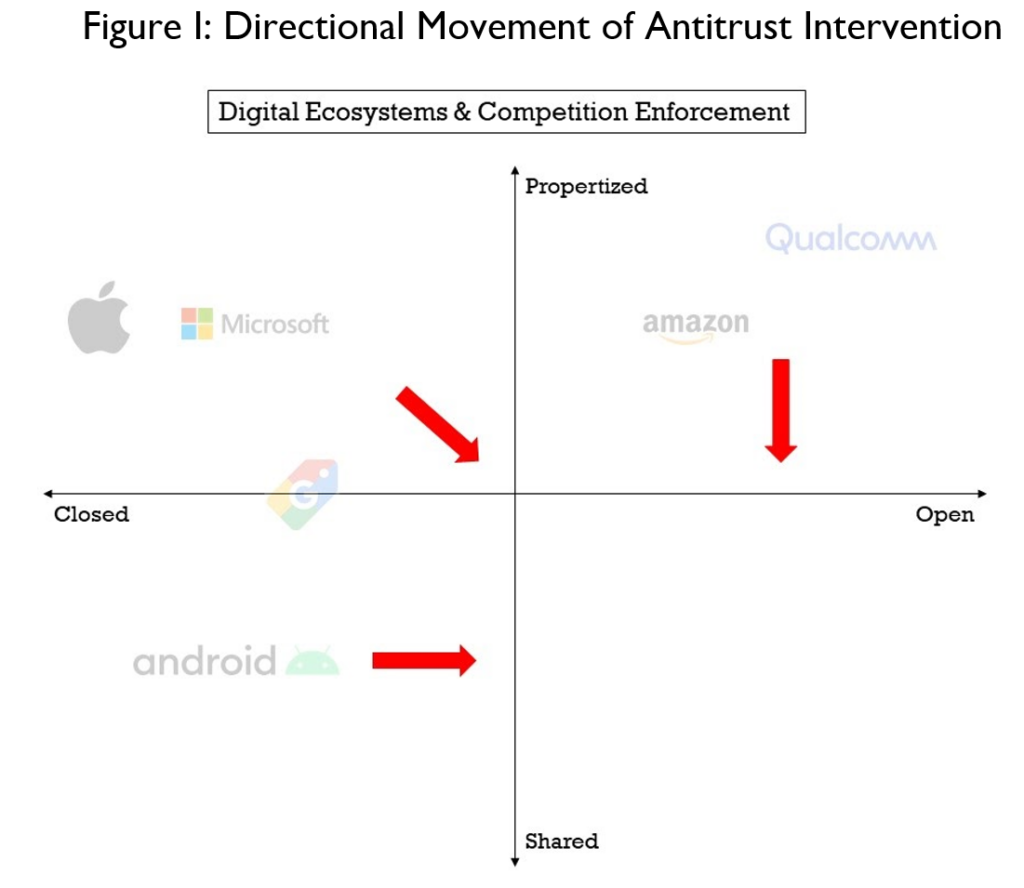The DOJ Gets AI and Antitrust Wrong in Google Case
After prevailing at the district court level in its antitrust case against Google, the Department of Justice (DOJ) is now seeking to break up the company, not just to protect rival search engines, but to protect the artificial intelligence (AI) market. Now that the matter is at the remedies stage, the DOJ argued that "[t]his court’s remedy should be forward-looking and not ignore what is on the horizon.”
However, the DOJ’s belief that Google must be torn apart to protect AI innovation is not only premature, it rests on tired misconceptions about the role of antitrust in this country’s economic history. Hampering Google for the sake of helping its competitors will undermine economic dynamism, not enable it.

The Antitrust Case Against Google
In 2019, the DOJ launched a lawsuit against Google challenging certain practices related to its search engine under Section 2 of the Sherman Act. The district court agreed with the DOJ and ruled that Google’s conduct was illegal.

Although Google is expected to appeal the decision, the parties are currently discussing potential remedies, which the DOJ argues must involve structural separation. Although this would be an extreme idea, the agency asserts that nothing else can correct for the tech platform’s massive advantage over competitors after years of being the most popular search engine and the user loyalty and data it has gained. In fact, the government has suggested that Google be forced to share its search data, an essential corporate secret, with other AI developers to level the playing field.
The Misconception About AI Monopoly
Although the government’s depiction of Google as a dangerous AI monopolist is unsurprising, the market reality cannot be further from the truth. Competition in the AI market is intensifying as the technology is applied in different ways and firms continue to make improvements to their products.

Antitrust intervention, particularly in vertical restraint cases such as the matter of Google Search, is best done after extensive economic research and when a market is thoroughly understood. Otherwise, the government is just breaking apart and interfering with business conduct that it does not understand. However, that is precisely what the DOJ is doing by seeking remedies to address Google’s dominance in not just the search engine market but also the AI sector, which is still in its infancy.
The Lessons from History
Unfortunately, the bottleneck dilemma is a constantly recurring misconception in the history of American antitrust, and the lesson is never learned. Many credit the use of antitrust against incumbent firms as a means of dismantling bottlenecks and unleashing a wave of innovation, such as in the case of Microsoft or IBM near the end of the 20th century.

Forcing Google to open up its system to competitors will likely decrease, not increase, competition and degrade the welfare of consumers. On the one hand, Google is deprived of the resources it worked hard to obtain while also being less incentivized to improve its products, since its competitors will be able to free-ride off the company’s efforts. Google’s rivals will feel less pressure to improve and innovate, and consumers will ultimately lose in the end.
Justice Scalia discussed the irony of such interventions in Trinko when he wrote, “[m]istaken inf




















